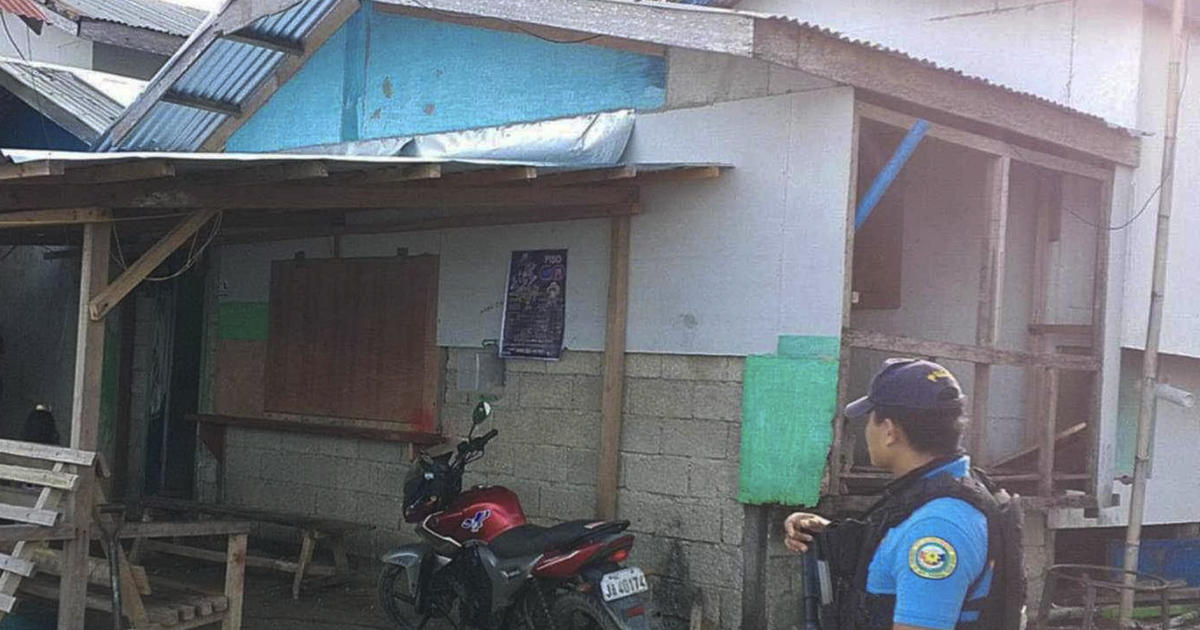The Philippines is grappling with a recent incident involving the alleged abduction of an American national, Elliot Onil Eastman, from the southern coastal town of Sibuco, Zamboanga del Norte. Eastman, reportedly shot in the leg during his attempted escape, was allegedly taken by speedboat by four armed men disguised as police officers. This incident highlights the ongoing security challenges in the southern Philippines, a region plagued by poverty, insurgency, and a history of kidnappings for ransom. The incident, still under investigation, underscores the need for continued vigilance and cooperation between local authorities and international entities in maintaining regional security. The alleged abduction is a serious matter that demands immediate attention and thorough investigation, revealing potential implications for regional stability and international relations.
The Abduction of Elliot Onil Eastman
The Incident and Initial Response
On Thursday night, reports surfaced concerning the alleged abduction of 26-year-old American national, Elliot Onil Eastman, from Sibuco. Eyewitness accounts, including that of a local resident, Abdulmali Hamsiran Jala, indicate that four armed men, dressed in black and posing as police officers, forcefully abducted Eastman after he attempted to resist. Eastman sustained a gunshot wound to the leg during the struggle. The abductors then fled by speedboat, heading south towards the provinces of Basilan or Sulu. Local police initiated a pursuit, but the perpetrators and Eastman evaded capture. The regional police issued a statement confirming the incident and reassuring the public that efforts were underway to secure Eastman’s safe return. The police appealed for public assistance to aid the investigation. The speed and efficiency of the police response, despite the difficult circumstances, are notable. They immediately began the search operation and reached out to the wider public for assistance in locating Eastman.
The Suspects and Their Motives
The abductors, described as four armed men wearing black clothing and posing as police officers, remain at large. They were reportedly armed with M16 rifles, suggesting a level of planning and organization. The police reports suggest that this is a targeted kidnapping for ransom based on initial investigations into this incident and based on a past history of similar incidences in the region. While the motive is currently being investigated, kidnapping for ransom remains a significant concern in the southern Philippines, fuelled by the high rate of poverty in this area. The authorities have not made a definite statement but they are proceeding on this presumption. The potential for political motivations connected with the upcoming mid-term elections in the Philippines cannot be ruled out. Such motivations have played a significant role in crime and kidnappings in past elections.
The Southern Philippines: A History of Security Challenges
Insurgency and Kidnappings
The southern Philippines has a long history of security challenges, exacerbated by poverty and the presence of various insurgent groups. While the 2014 peace agreement with the Moro Islamic Liberation Front (MILF) significantly reduced large-scale conflict, smaller armed groups, such as the Abu Sayyaf Group (ASG), remain active. The ASG, designated a terrorist organization by the U.S. and the Philippines, has a history of kidnappings, beheadings, and bombings, often targeting Westerners for ransom. The region’s history of conflict has also provided safe harbour for insurgent activities and made the area conducive to crimes that require speedboat getaway. This incident may prove that this risk persists. While these activities have reduced, incidents like Eastman’s abduction remind us that the challenges are not completely over and require continuous engagement by government bodies and the support of communities to eliminate the remaining cells of terrorist organizations operating in this region.
Political Instability and Crime
The upcoming mid-term elections in the Philippines add another layer of complexity. In the past, election cycles have seen a surge in criminal activity, including kidnappings, as individuals seek to raise funds for campaigns or exert influence. Though authorities have reported a decrease in such incidents in recent years, the potential for election-related crime can never be entirely ruled out, given the history of violence and political instability within the region. This risk is one of the critical reasons the area is considered a volatile region and incidences such as these remain a serious threat.
International Response and Future Implications
The U.S. Embassy in Manila has yet to issue an official statement on the abduction. However, given the American citizenship of the victim, the incident will likely draw international attention and could affect U.S.-Philippine relations. The kidnapping is a matter of considerable concern due to the implications involved for bilateral relationships and security measures within the region. The incident serves as a sobering reminder of the security risks involved with the southern Philippines.
Collaboration and Prevention
Addressing the security challenges in the southern Philippines requires continued collaboration between local, national, and international authorities. This involves robust law enforcement efforts, intelligence sharing, and focused development programs to alleviate poverty and address the underlying causes of insurgency. Improved community engagement and counterterrorism tactics may be required. The incident underlines the urgency of this, which requires not just the investigation of this case, but further work to create long-term regional stability. The situation also serves as a call for improving regional coordination in intelligence gathering to quickly detect and intercept such criminal actions before they have time to cause harm.
Takeaway Points:
- The abduction of Elliot Onil Eastman highlights the persistent security challenges in the southern Philippines.
- Kidnapping for ransom remains a significant threat, fueled by poverty and the presence of armed groups.
- The upcoming elections increase the risk of election-related crimes.
- International cooperation is crucial in addressing these challenges.
- Addressing poverty and fostering long-term stability in the region is paramount.




